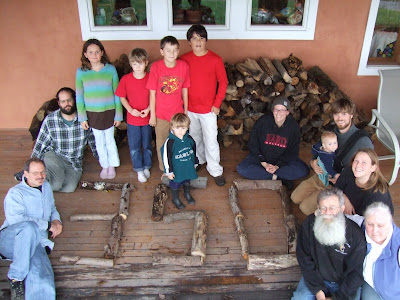Day 4 (Wednesday) is drawing to a close and I certainly earned my pay today. We left the hotel at 6:30 a.m. and arrived back at 9:30 p.m. I have many impressions I’d love to share with all of you, but I’m kaput. Okay, okay, here are just a few.
It took us 3 hours to reach Phulpur in the Mymensingh District, just 25 kilometers short of the northern border with India. I saw one fascinating thing after the next pass by my car window. The lead auditor, my partner Sol, was getting sicker and sicker as we drove north and by the time we were in the opening meeting with the staff, she was “hanging by a thread,” she told me. At the meeting’s conclusion, she had to go lie down, so I was in charge – after having so successfully programmed myself the previous two days not to take the lead on anything!
With Tarikul, the translator, I did the usual interviews in the main office. He’s a quick learner, so he remembered from the previous day some of the topics we needed to cover and we made a good team. Lunch was served to the Manager, Tarikul, and me in the Manager’s office: rice, fish in sauce, chicken in sauce, vegetables in sauce, and lentils (daal). The irony was that they had their gender equity specialist serving us. Let me tell you, they have millions of miles to go on their goals for what we call “gender mainstreaming.”
After lunch, Sol roused herself and went in the car to a sub-office, where she reviewed files and interviewed sponsored children. Tarikul and I went to visit projects traveling by motorcycle. We couldn’t go by car because the narrow, dirt pathways that lead from the main road to villages, threading their way among the rice paddies and fish ponds, only accommodate motorcycles, bicycle rickshaws, and pedestrians.
Now, imagine – in order for WV to take me by motorcycle as a passenger, they had to find a woman driver. No way could they have me straddle a seat behind a man! They had to survey all the sub-offices in that part of Bangladesh to find the best two women motorcyclists (preparing to take both Sol and me), confirm they had licenses, and then ask them to come for the day. Indeed, my driver (a Project Officer, not a chauffeur) was excellent and all went smoothly as we made one short trip after the next from project site to site. By the end I was quite good at putting on and taking off my helmet, staying relatively modestly covered, and keeping my long scarf out of the motorcycle wheels. Some day I’ll tell you about my challenge with scarves, if you’re interested.
The projects were interesting (adolescent reproductive health, student tutoring, crop diversification, etc.) and the children and adults generally enthusiastic. Tarikul did a great job at each stop when we interviewed the groups. He would take my initial questions and carry on a good exchange with them, acquiring just the type of information of interest to Sol and me, as he had learned the previous day.
I could write a few pages on the harrowing 4-hour ride back to Dhaka, but maybe it’s best left undescribed. Bottom line is, our driver didn’t hit or kill any of the thousands of people on the road, many of whom were emerging after 10-hour shifts in the huge garment factories we passed by. Whew.
Tomorrow we finish our review, prepare our findings, and debrief the Dhaka team. I head to the airport then for an evening flight. See you back in the U.S. soon!
-Spee















